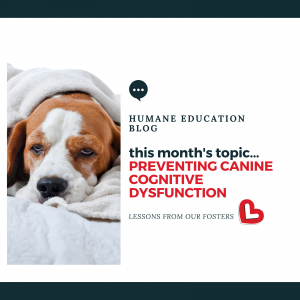
This may be a long post so please stay with me here. I want to talk to you today about adding a new dog to your family. When it’s time to add a new family member, and getting a dog is adding a new family member, you are committing to keeping that dog for its entire life. Please, first think about that. We’ll talk about breed and size in a minute, but age is a consideration too when getting a new dog. If you are adopting a puppy, that could be 15-18 years depending on the breed. Are you ready for that commitment? If not, is an older dog right for you? Puppies require quite a bit more time and training as they need their owner to teach them almost everything. Older dogs generally still require some training and patience as they enter a new home, but it’s usually quite a bit less than a puppy.
Second, think about where and how you live. The breed, size, and temperament of the dog you adopt should be compatible with your living situation and your personality. Apartments are great for some dog breeds that don’t need a ton of exercise, but some dog breeds need a home with a large fenced-in yard to get in some playtime. Do some research to find the right breed/mix for your situation. There are lots of websites out there that can tell you all about the breeds and what each needs and the adoption counselors whom you are going to adopt your dog from are great resources to help as well. Not only can they tell you about breeds, but they can tell you about each specific dog too. Listen to them.
Third, don’t forget your family. Make sure you pick a dog that is good for your family situation now and for the future. Do you have kids now or plan to? Do you have other dogs or cats or plan on adding more? Do you have farm animals? Do you want a dog that will travel with you? Plan for now and for the next 10 years.
And finally, make sure you have a plan and finances for all the things that your new dog will need. Some breeds are prone to health concerns that will require additional Vet care, but all dogs will need a minimum of annual check-ups and vaccines. Food, supplements, toys, and training should not be forgotten either. Grooming is also very important to consider. Be sure to know what grooming needs your new dog will have. Will you need to brush/bathe the dog at home frequently? With the dog need to see a professional groomer regularly?
Please take some time to think about all of this before bringing a new dog into your family, and have a discussion about it with the entire family. This is an important decision that should be given thought and consideration. Too many homeless dogs are in Shelters because their families didn’t take the time and understand what they were bringing home. Shelters and Rescues are overwhelmed. Take time to be a part of the solution, not the problem. Pick a dog that fits your home and lifestyle, not just because it is “cute” or you feel sorry for it.
For more information, please take a look at the following: https://www.happyhounduniversity.com/single-post/essential-factors-to-consider-when-adopting-a-dog
Nicole Laber, Fospice Mom and Board Treasurer






























